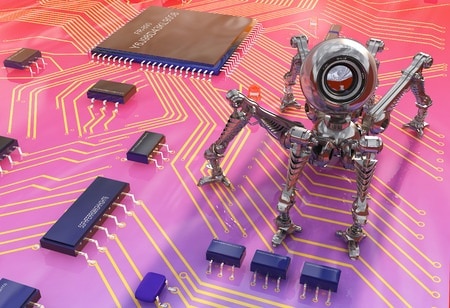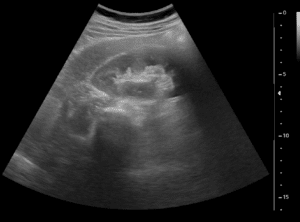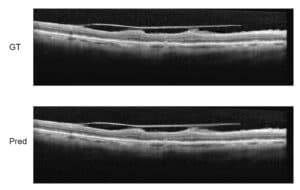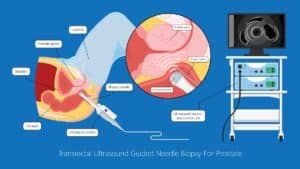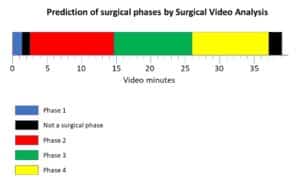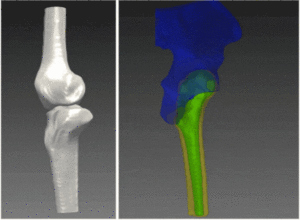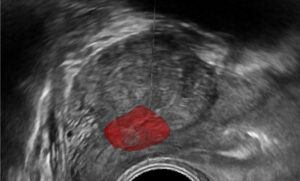Defect detection in semiconductors manufacturing process is performed by robots which are fast enough to perform on the fly testing. They use a high resolution camera with a microscope in its front. Machine vision system processes the captured images. The processing usually involves two phases: defect detection and classification of the defects.
Defect detection by robots for semiconductors
Defect detection is a machine vision process, performed by high speed comparison of adjacent areas on the wafer having the same geometry. Since wafer is composed of a set of chips (dyes), built side by side, it is most efficient to compare the corresponding locations of the chips (dye to dye). Another comparison method is cell to cell, used for memory chips where similar geometries reside inside each chip. All the comparisons are made for 3 repeated elements (cell or dye) to be able to spot the one that is defective. Inside, the comparison is up to pixel level, to support the latest semiconductor technologies (Channel width). Auto focusing and image registration are essential machine vision tasks which enables the whole process. Any problematic wafer area is stored for the classification phase.
Defect classification by robots for semiconductors
Defect classification is identifying the defect type, to allow the semiconductor fabrication process to be corrected and recovered. For example, a dust particle may point to a problem with the production environment’s air filtering. Originally, the defect classification used classical computer vision algorithms. Feature extraction and some image and geometric properties were involved. Recently, deep learning technology is used for classification. Defect images tagged with their fault type are used in the learning phase. The deep learning-based classification beats the classical machine vision algorithms, the latter being able to classify defects that are pre-programmed (corresponding to the programmed rules). Using deep learning, the system may detect larger variations of each type and learn from any classification performed.
RSIP Vision offers its clients cutting-edge deep learning software custom-built for their semiconductors operations.

